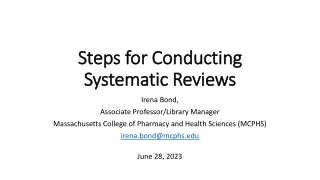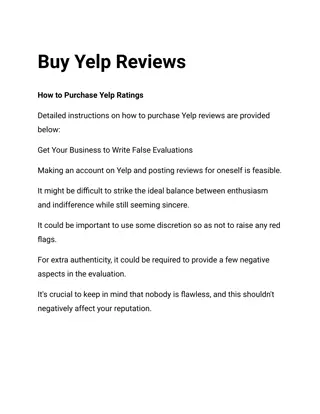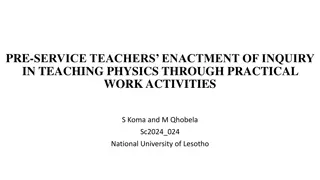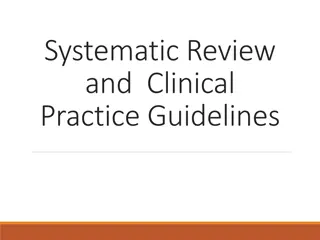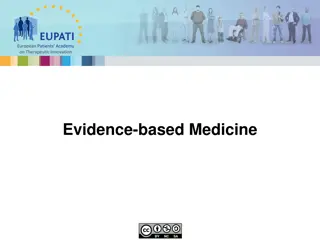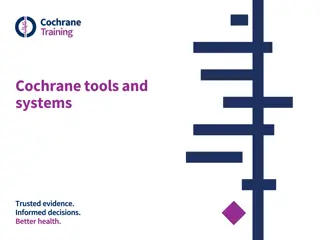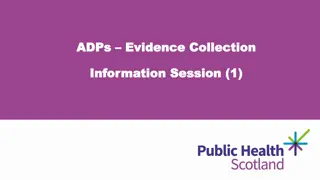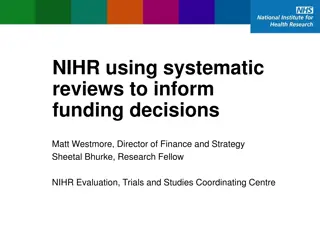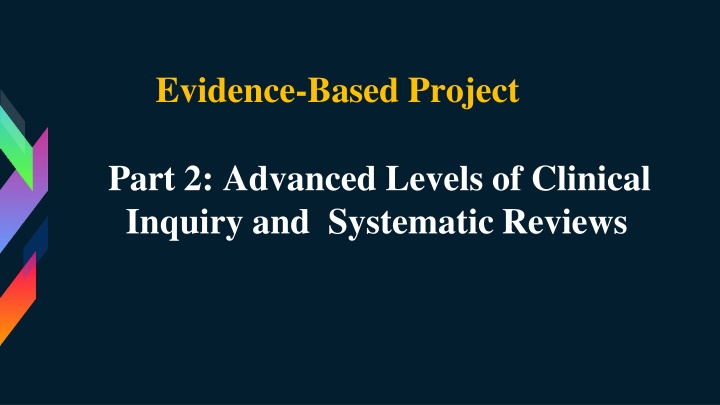
Effective Resilience Training for Decreasing Workplace Incivility
Explore how resilience training can help reduce workplace incivility, specifically in the Emergency Department, through a systematic review guided by a PICOT question. Discover relevant articles and databases for in-depth research on this critical topic.
Download Presentation

Please find below an Image/Link to download the presentation.
The content on the website is provided AS IS for your information and personal use only. It may not be sold, licensed, or shared on other websites without obtaining consent from the author. If you encounter any issues during the download, it is possible that the publisher has removed the file from their server.
You are allowed to download the files provided on this website for personal or commercial use, subject to the condition that they are used lawfully. All files are the property of their respective owners.
The content on the website is provided AS IS for your information and personal use only. It may not be sold, licensed, or shared on other websites without obtaining consent from the author.
E N D
Presentation Transcript
Evidence-Based Project Part 2: Advanced Levels of Clinical Inquiry and Systematic Reviews
Clinical Issue In my clinical experience, I have observed incivility in the ED through microagressions between healthcare providers. The microagressions are in the form of intentional and unintentional hostile communications, use of derogatory language and negative attitudes towards colleagues. Incivilityis defined as negative behaviour of insulting others or violating common norms of behaviour in the workplace (Atashzadeh Shoorideh et al. 2021) Guided by a PICOT question, I want to establish is resilience training is an effective measure to help decrease workplace incivility. Workplace Incivility 2
Development of PICOT Question PICOT is a framework used by researchers to formulate research questions and facilitate literature search (Eldawlatly et al. 2018 ) P-Population I-Intervention Nurses working in emergency department (ED) Resilience training C-Comparison No resilience training O-Outcome Decrease in work incivility T-Time Twelve weeks 3
Databases PubMed Central: A free full-text archive of biomedical and life sciences journal literature A collection of full-text research articles from nursing and allied health journals CINAHL Plus with Full Text This is a database with biomedical literature from over 4800 journals MEDLINE with Full Text A database providing access to biomedical literature from several journals Embase 4
Articles Citations Abdollahzadeh, F., Asghari, E., Ebrahimi, H., Rahmani, A., & Vahidi, M. (2017). How to prevent workplace incivility?: Nurses perspective. Iranian Journal of Nursing and Midwifery Research, 22(2), 157-163. https://doi.org/10.4103/1735-9066.205966 Armstrong, N. (2018). Management of nursing workplace incivility in the health care settings: A systematic review. Workplace Health & Safety, 66(8), 403- 410. https://doi.org/10.1177%2F2165079918771106 Kile, D., Eaton, M., deValpine, M., & Gilbert, R. (2019). The effectiveness of education and cognitive rehearsal in managing nurse to nurse incivility: A pilot study. Journal of Nursing Management, 27(3), 543-552. https://doi.org/10.1111/jonm.12709 Razzi, C. C., & Bianchi, A. L. (2019, October). Incivility in nursing: Implementing a quality improvement program utilizing cognitive rehearsal training. In Nursing forum (Vol. 54, No. 4, pp. 526-536). https://doi 10.1111/nuf.12366 5
Levels of Evidence Armstrong, (2018) Level III B- This is a systematic literature review of 10 studies which have been identified as lower quality research. The study provides a fairly definitive conclusion that educational training and other interventions can improve nurses ability to manage workplace incivility. Abdollahzadeh et al. (2017) Level III A- This is a qualitative study involving 34 nurses from seven training hospitals. This population size is sufficient to draw a conclusion for this study design. The study provides a definitive conclusion that systematic attempt to improve skills can prevent incivility. 6 6
Levels of Evidence Razz et al. (2019) Level III- This is a quality improvement program study. Pre and post-intervention assessment was done using a nursing incivility scale to assess the effectiveness of the program. The study provides definitive conclusions such as the need for incivility programs to provide tools to identify uncivil behaviours. Kile et al. (2019) Level II B- This is a mixed method pilot study. There is intervention but no randomization which implies that it a quasi-experiment was done. The study results in fairly definitive conclusions. Example: The study concludes that the interventions were effective in increasing the nurses recognition of uncivility and ability to confront it 7 7
References Atashzadeh Shoorideh, F., Moosavi, S., & Balouchi, A. (2021). Incivility toward nurses: a systematic review and meta-analysis. Journal of medical ethics and history of medicine, 14, 15. https://doi.org/10.18502/jmehm.v14i15.7670 Eldawlatly, A., Alshehri, H., Alqahtani, A., Ahmad, A., Al-Dammas, F., & Marzouk, A. (2018). Appearance of Population, Intervention, Comparison, and Outcome as research question in the title of articles of three different anesthesia journals: A pilot study. Saudi journal of anaesthesia, 12(2), 283 286. https://doi.org/10.4103/sja.SJA_767_17 8

